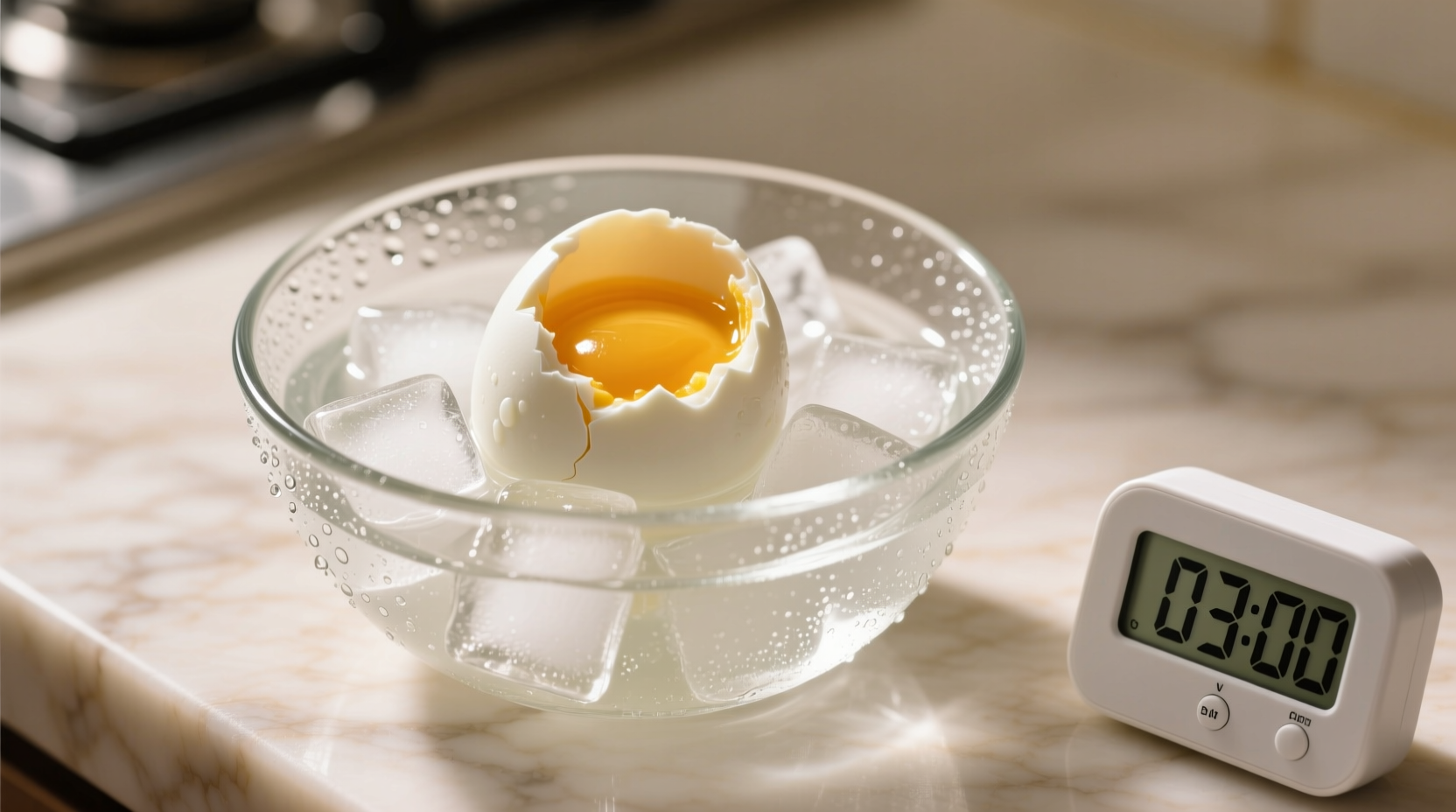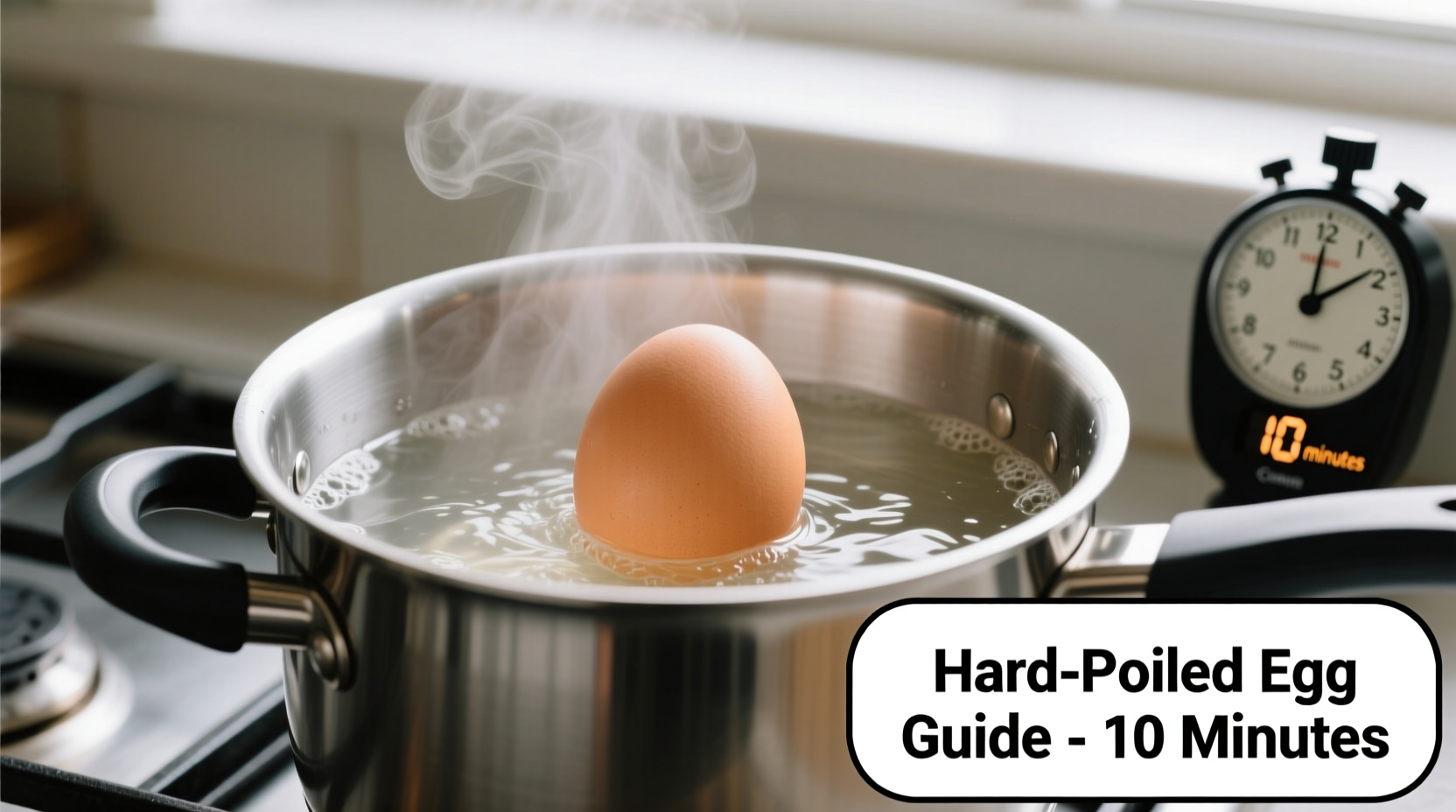| Egg Style | Yolk Texture | White Texture | Recommended Time |
|---|---|---|---|
| Soft-Boiled | Runny center | Firm but tender | 4-6 minutes |
| Medium-Boiled | Creamy center | Fully set | 7-9 minutes |
| Hard-Boiled | Firm throughout | Firm and opaque | 10-12 minutes |
Why Timing Matters for Perfect Boiled Eggs
Getting boiled eggs right depends on precise timing rather than guesswork. The proteins in eggs begin to coagulate at specific temperatures, creating different textures as cooking progresses. According to the USDA Food Safety and Inspection Service, eggs reach safe internal temperatures at 160°F (71°C), but texture varies dramatically based on cooking duration.
Step-by-Step Boiled Egg Process
Follow this chef-tested method for flawless boiled eggs every time:
- Start with room temperature eggs - Cold eggs from the refrigerator are more likely to crack when added to hot water. Let eggs sit at room temperature for 15-20 minutes before cooking.
- Use the right pot size - Choose a saucepan where eggs fit in a single layer with at least 1 inch of water above them. Overcrowding leads to uneven cooking.
- Add eggs to cold water - Place eggs gently in the pot, then fill with enough cold water to cover by 1 inch. Adding a teaspoon of vinegar helps prevent cracking.
- Bring to a gentle boil - Heat over medium-high until water reaches a gentle boil (small bubbles breaking the surface), then reduce to medium.
- Start timing immediately - Once water reaches a gentle boil, begin your timer based on desired doneness.
- Transfer to ice bath - When timer ends, immediately move eggs to a bowl of ice water for 10-15 minutes to stop cooking.
Factors That Affect Boiling Time
Several variables impact your perfect boiling time:
- Egg size - Large eggs (the standard size in recipes) require the times listed above. Extra-large eggs need 1-2 additional minutes, while medium eggs may need 1 minute less.
- Starting temperature - Refrigerated eggs need slightly longer than room-temperature eggs. If using cold eggs, add 1-2 minutes to the recommended times.
- Altitude - At higher elevations, water boils at lower temperatures, requiring slightly longer cooking times. Add 1-2 minutes for every 5,000 feet above sea level.
- Water hardness - Minerals in hard water can affect protein coagulation. If you have hard water, test with one egg first to adjust timing.
Troubleshooting Common Boiled Egg Problems
Even with perfect timing, issues can arise. Here's how to solve them:
Eggs Cracking During Cooking
This happens when eggs go from cold to hot too quickly. Prevent cracking by:
- Bringing eggs to room temperature first
- Adding eggs to cold water rather than boiling water
- Adding 1 teaspoon vinegar to the water
- Gently lowering eggs into water with a spoon
Difficulty Peeling Hard-Boiled Eggs
Fresh eggs are harder to peel because their lower pH causes the white to bond more strongly to the shell. For easier peeling:
- Use eggs that are 7-10 days old (not super fresh)
- Crack the shell all over before peeling
- Peel under running water or in the ice bath
- Start peeling from the wider end where the air pocket is located
Green Ring Around Yolk
A greenish-gray ring forms when eggs cook too long or at too high a temperature, causing a reaction between iron in the yolk and sulfur in the white. Prevent this by:
- Not exceeding 12 minutes for hard-boiled eggs
- Transferring eggs immediately to an ice bath
- Avoiding boiling water (gentle simmer is sufficient)

Storing and Using Your Perfect Boiled Eggs
Proper storage maintains quality and safety:
- Store unpeeled boiled eggs in the refrigerator for up to one week
- Keep in original carton or a covered container to prevent odor absorption
- Peel eggs just before using for best texture and flavor
- For meal prep, store peeled eggs in a container with a damp paper towel
According to a 2017 study published in Nutrients, hard-boiled eggs retain nearly all their protein content and most nutrients when properly cooked, making them an excellent source of high-quality protein, vitamin B12, and choline.
Advanced Tips for Culinary Success
Professional chefs use these techniques to elevate boiled eggs:
- Steam instead of boil - Place eggs in a steamer basket over 1 inch of boiling water. Steam for 13 minutes for perfect hard-boiled eggs with no risk of cracking.
- Perfect soft-boiled eggs for ramen - Cook for exactly 6 minutes, then plunge into ice water for 1 minute before adding to hot broth.
- Consistent results with sous vide - Cook eggs at 167°F (75°C) for 45 minutes for perfectly set whites and runny yolks.
- Easy-peel hack - Add 1/2 teaspoon baking soda to the cooking water to raise pH and make peeling easier.
Frequently Asked Questions
How long should I boil eggs for deviled eggs?
For deviled eggs, cook eggs for 10-12 minutes to ensure fully set yolks that are easy to work with. After boiling, immediately transfer to an ice bath for at least 15 minutes to make peeling easier and prevent the green sulfur ring from forming around the yolks.
Can I boil frozen eggs?
No, you should never boil frozen eggs directly. Frozen eggs can explode when placed in boiling water due to pressure buildup. Thaw frozen eggs in the refrigerator for 24 hours before boiling, or use them in recipes where they'll be beaten (like scrambled eggs or baking).
Why do my boiled eggs have a rubbery texture?
Rubbery egg whites occur when eggs are overcooked. This happens when eggs boil for more than 12 minutes or remain in hot water after cooking. For tender whites, limit cooking to 10-12 minutes maximum for hard-boiled eggs, then immediately transfer to an ice bath to stop the cooking process.
How can I tell if boiled eggs are done without a timer?
While a timer is most reliable, you can test doneness by carefully spinning the egg on a flat surface. A fully cooked hard-boiled egg will spin smoothly and quickly stop when tapped, while a raw or partially cooked egg will wobble due to the liquid inside. However, this method isn't precise for medium or soft-boiled eggs, so timing remains the most accurate approach.
Do older eggs boil better than fresh eggs?
Yes, eggs that are 7-10 days old generally peel more easily than very fresh eggs. As eggs age, the air pocket inside grows and the pH increases slightly, causing the membrane to separate more readily from the shell. However, extremely old eggs (more than 3 weeks) may develop off-flavors and shouldn't be used for boiling.











 浙公网安备
33010002000092号
浙公网安备
33010002000092号 浙B2-20120091-4
浙B2-20120091-4